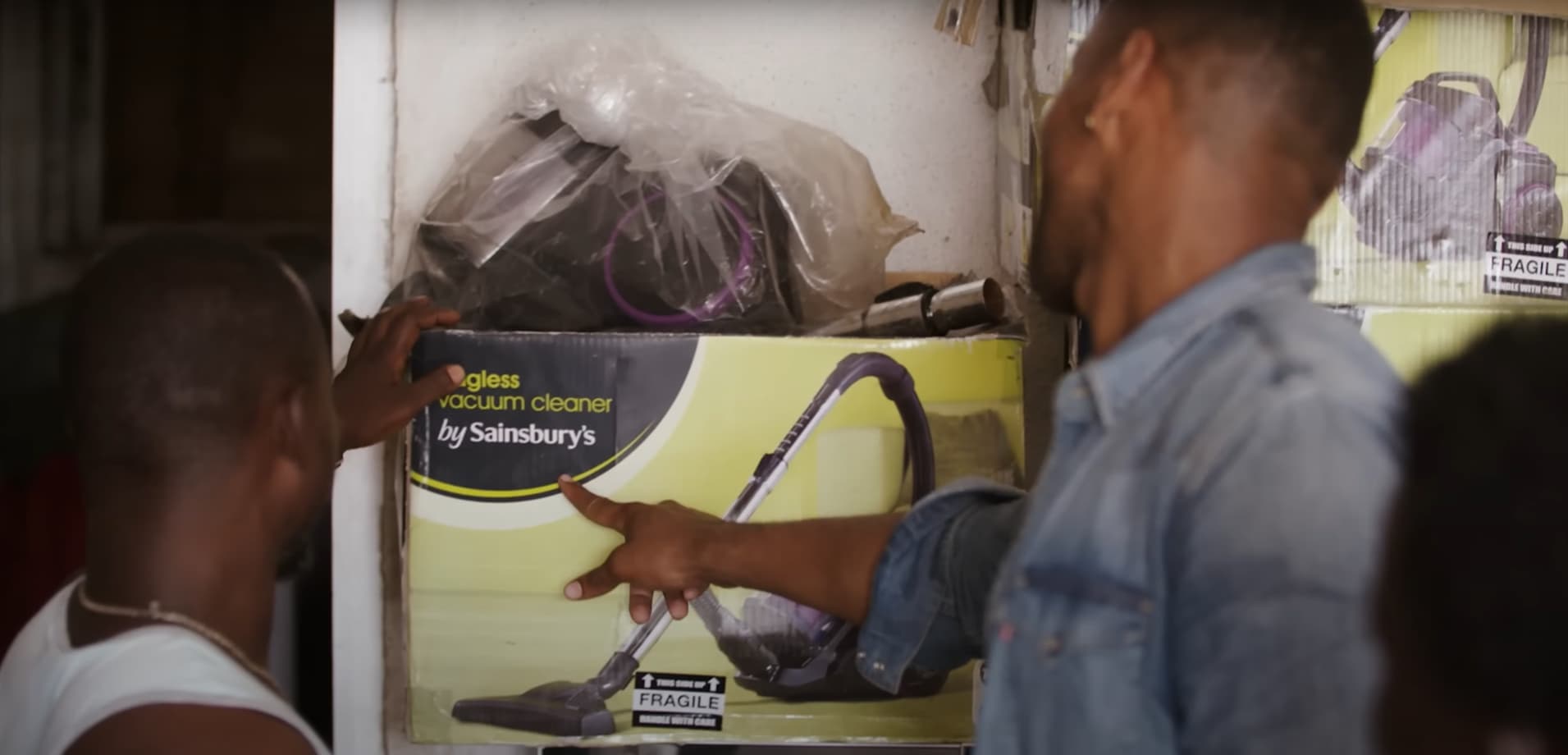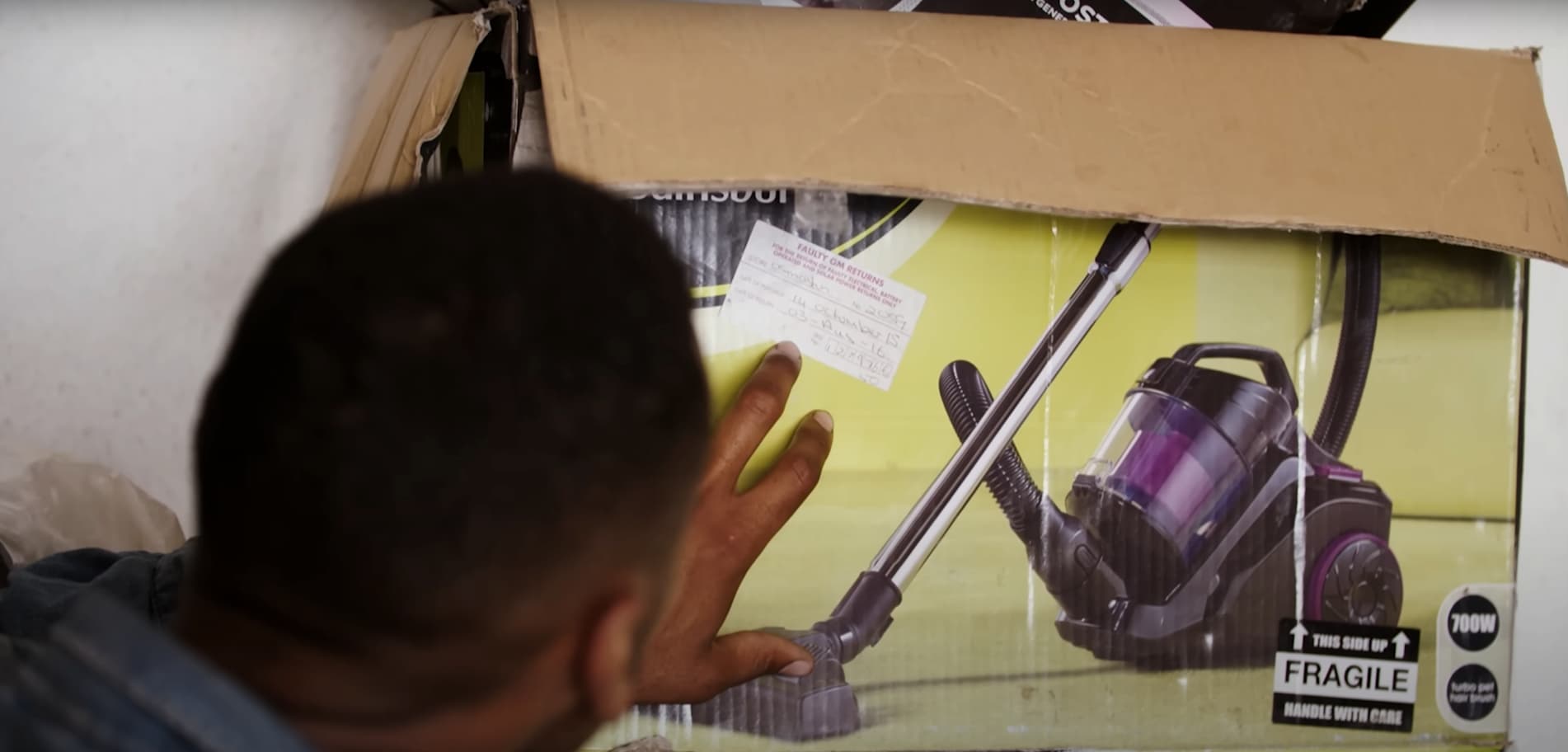Sainsbury’s Faulty Products End Up in Ghana for Recycling, Raising Concerns about Environmental Impact and Workers’ Safety

In recent news, it has come to light that faulty products from Sainsbury’s, a major UK-based supermarket chain, are finding their way to Ghana for recycling, particularly focusing on copper components. This revelation has raised concerns about the environmental impact of such practices and the working conditions of those involved in the recycling process in Ghana. Allegations suggest that workers in Ghana are handling these products without adequate protective equipment, leading to potential health hazards.

Sainsbury’s and Recycling Practices
Sainsbury’s, like many other large corporations, has been actively participating in sustainability initiatives, including recycling programs. The company has implemented various measures to reduce its environmental footprint, including promoting recycling and responsible waste management. However, recent reports have shed light on a potential gap in their supply chain and recycling processes, specifically concerning the disposal of faulty products containing copper.
Faulty Products Disposal in Ghana
It has been reported that Sainsbury’s faulty products, particularly those with copper components, are being shipped to Ghana for recycling. The choice of Ghana as a destination for recycling raises questions about the environmental and social implications of such a practice. Copper is a valuable and recyclable material, and companies often seek cost-effective methods to extract and reuse it. However, how these products are processed in Ghana has raised concerns.
Environmental Impact
The disposal and recycling of electronic waste, including products with copper components, can have significant environmental consequences if not managed properly. In Ghana, where regulations and enforcement on e-waste recycling may not be as stringent as in some other countries, there is a risk of improper disposal and contamination of local ecosystems. The release of toxic substances from electronic waste, such as heavy metals and hazardous chemicals, poses a threat to both the environment and public health.
Sainsbury’s Responsibility
As a major retailer with a commitment to sustainability, Sainsbury’s is expected to uphold responsible business practices throughout its supply chain. The company needs to address the concerns raised regarding the disposal of faulty products in Ghana and take steps to ensure that its recycling practices align with environmental and ethical standards.
Working Conditions and Lack of Protective Equipment
Another critical aspect of this issue is the reported lack of protective equipment for workers involved in the recycling process in Ghana. Workers are allegedly handling potentially hazardous materials without adequate safeguards, exposing them to health risks. Sainsbury’s has a responsibility to ensure that its business activities do not contribute to unsafe working conditions or environmental degradation.
Potential Repercussions and Public Perception
The exposure of Sainsbury’s involvement in these questionable recycling practices could have significant repercussions for the company’s reputation. Consumers are becoming increasingly conscious of the ethical and environmental practices of the brands they support. In light of this, Sainsbury’s may face public backlash if it is perceived as neglecting its responsibility to uphold high standards of environmental and social responsibility.
Faulty Products and Copper Concerns
- Unsafe recycling: Reports claim Sainsbury’s exports electrical appliances and other products containing copper wires as “recyclables” to Ghana. These faulty items often leak hazardous materials, including lead and mercury, contaminating the environment and posing serious health risks.
- Copper extraction under dangerous conditions: Ghanaian waste pickers, desperate for meagre earnings, resort to crude methods to extract copper from these imported goods. They burn wires over open fires, releasing toxic fumes and exposing themselves to harmful metal particles, all without proper protective equipment.
- Child labour concerns: The desperation for copper is reported to involve children in this dangerous extraction process, raising serious ethical concerns about Sainsbury’s responsibility for ensuring child labour is not part of its supply chain.
Environmental and Health Fallout
- Pollution: The burning of wires and improper handling of hazardous materials from faulty products exacerbate Ghana’s existing air and soil pollution problems, posing risks to local communities and ecosystems.
- Heavy metal poisoning: Workers exposed to lead, mercury, and other metals through unsafe copper extraction practices face a high risk of chronic health problems, including neurological damage and organ failure.
Demands for Accountability
Civil society groups and environmental organizations are calling for immediate action from Sainsbury’s:
-
- A halt to exporting faulty products to Ghana.
- Investment in safe and sustainable recycling practices in Ghana, with proper infrastructure and worker protections.
- Transparency about the full extent of its waste exports and supply chain practices.
Governments and international organizations are urged to:
-
- Implement stricter regulations on waste exports and recycling practices.
- Provide support to Ghana in improving its recycling infrastructure and enforcing worker safety regulations.
Steps for Improvement
To address the concerns raised, Sainsbury’s can take several proactive steps:
- Enhanced Supply Chain Oversight: Strengthening oversight and auditing mechanisms in the supply chain to ensure that faulty products are disposed of responsibly and in compliance with environmental regulations.
- Worker Safety Measures: Implementing and enforcing strict safety measures for workers involved in the recycling process, including the provision of protective equipment and training on handling hazardous materials.
- Local Collaboration: Collaborating with local authorities and organizations in Ghana to improve e-waste recycling infrastructure and practices, contributing to sustainable development in the region.
- Public Transparency: Providing transparent and regular updates to the public on the company’s recycling practices, sustainability initiatives, and corrective actions taken in response to the current concerns.
- Investment in Circular Economy: Investing in technologies and processes that promote a circular economy, emphasizing the recycling and reuse of materials while minimizing environmental impact.
Sainsbury’s Response
Sainsbury’s has yet to address the specific allegations about faulty products and copper concerns. However, the company maintains its commitment to responsible waste management and promises to investigate the reports. Critics remain sceptical, demanding concrete actions and independent verification of Sainsbury’s claims.
The Situation Escalates
The revelation of Sainsbury’s faulty products ending up in Ghana for recycling, particularly with concerns about copper components, highlights the complexities and challenges associated with global supply chains and waste management. As consumers increasingly demand transparency and ethical practices from corporations, companies like Sainsbury’s must uphold high standards of environmental and social responsibility. Addressing these concerns promptly and taking concrete actions to improve recycling practices will not only mitigate potential reputational damage but also contribute to a more sustainable and responsible business model.




